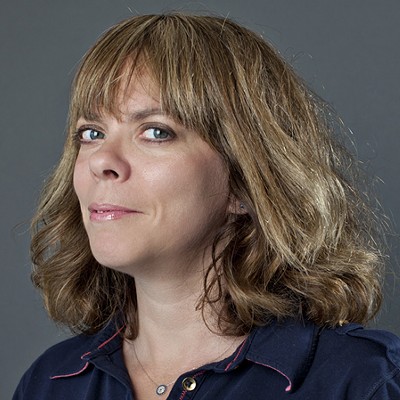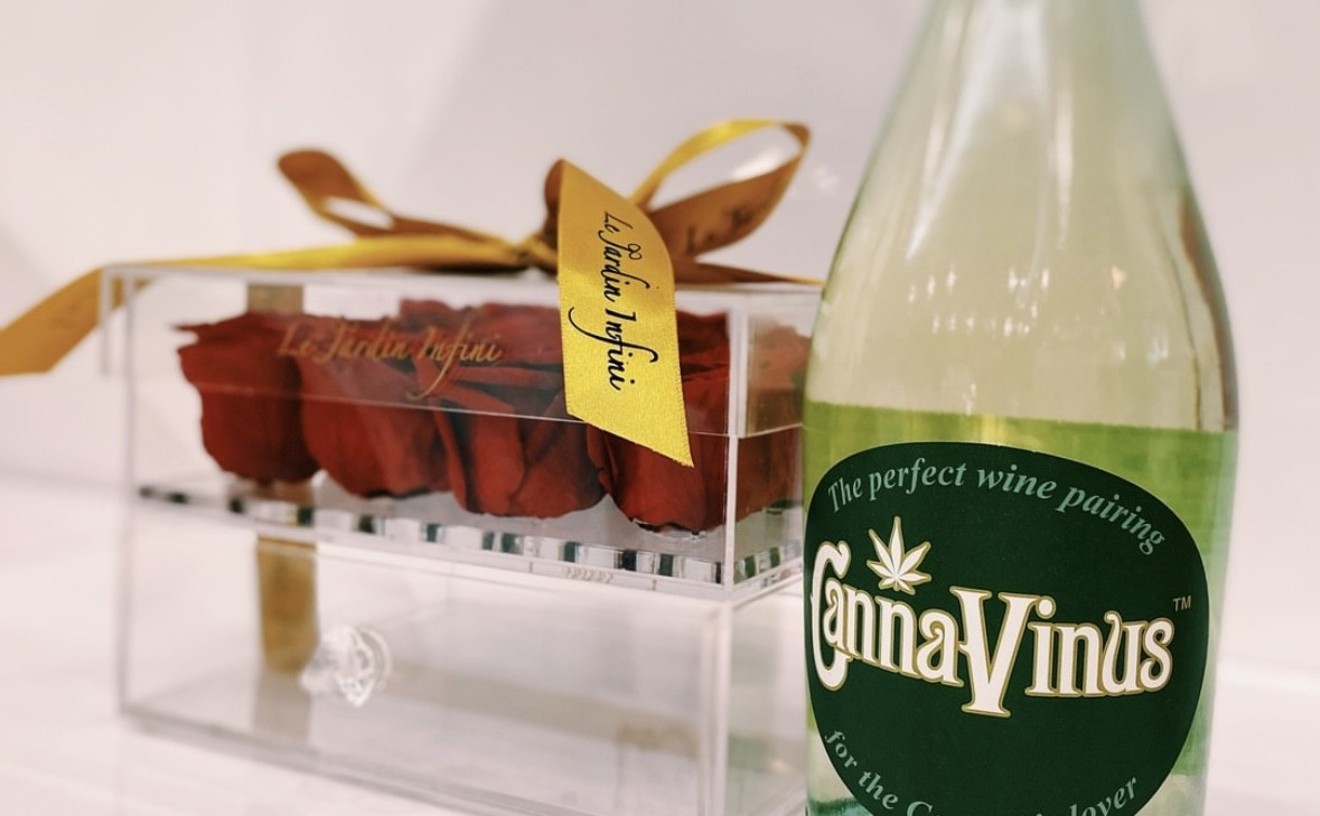Chef Joey Giannuzzi, chef/owner of the Green Gourmet in Delray Beach, is all set to open his second restaurant, DIG (Doing It Green), with partner Robert Greenfield.
The 5,000-square-foot restaurant, which takes over the Greenfield's on Atlantic space, has been transformed to incorporate a green theme. From food to soda to décor, every effort has been made to make the restaurant as sustainable, clean, and waste-free as possible.
The restaurant is set to open this Friday, but Giannuzzi, in a fit of "calm before the storm," spent an hour talking to Clean Plate Charlie about DIG -- its concept and its food.
Clean Plate Charlie: Are you all set to open DIG on Friday? You seem pretty calm.
Chef Joey Giannuzzi: Yeah, the food is ready, and the front of house looks fantastic. We're partnering with Farmer Jay from Farmer Jay Organics, and we're going to have a working garden on the premises, so while you're dining, you're going to be able to see the farm. That's not finished yet, so that's one of the projects that's making me nervous.
You're starting at the end of South Florida growing season. What are you planning to grow until fall?
We're going to start out with edible flowers, eggplants, and long beans. In the fall, after the growers come back to South Florida, we're going to do a greenmarket here too. We'll start around Thanksgiving time. The restaurant is so big, we've got plenty of room to have some great vendors. We're going to do it on Sunday mornings.
Give us your background in a minute.
Well, I never went to culinary school. I hooked up with Burt Rapoport's Restaurant Group in 1989 and went to culinary school for three months, where I spent a lot of money. I sought out some mentors in the industry who told me to find the toughest chef to work with and just follow him, so I did that. I would be scheduled to work a dinner shift and I would come in first thing in the morning and work for free. That's how I came up, under Burt and his chefs.
As a chef, you tend to gravitate toward the food, but the cool thing is I got to learn about food and business after eight years at Henry's, and I wanted to give it a shot on my own. I opened the Green Gourmet. The restaurant was mainly a takeout concept, so I started with four seats. All of a sudden, I got a great review and the place was jammed. I had to call my equipment vendor to bring in tables and chairs -- anything he had. We have 50 seats now.
Everything was served on paper plates and plastic cups. So I went on Facebook and asked for people to bring me their mismatched plates and glasses in exchange for a free dessert. And they did. So we got a chance to repurpose those extra plates and silverware that people normally throw out.
Take me into DIG. How are you translating the "green and clean" concept into the décor, the food, the entire restaurant?
The whole buildout is green. For instance, the wallpaper is coconut paper. We're serving only pH balanced water. We have cool recycled bottles for the water, which we're going to infuse with orange or cucumber. All bread will be baked on premise. We're going to compost and recycle. Even the soda is green.
How did you get into the organic and green movement? Was there an epiphany?
Here's the way it played out: I remember a vendor came to me -- I'm going back nine or ten years ago -- and she brought me some organic produce to try -- some eggplant and other stuff. I cooked with it and tasted it, and it just tasted good. Back then, I didn't know clean food from dirty food, but as a chef, you just want good-tasting ingredients. But the organic produce was so expensive. I asked her what's the deal with that? She told me that since organic farms don't use pesticides, they lose a percentage of their crops. I had to test the waters before I could commit to that price increase.
Did people like the food? Did they understand organics?
I started running specials with organics, and I would do one dish a night. I realized we're on to something here. You start doing research on organics and it's a whole different world. We're going back in time, in a good way, to what our grandparents used to eat. I think there's something wrong when you get an eggplant the size of a watermelon and there's no flavor in it. Then you learn about the pesticides and the hormones and the antibiotics in the foods we eat. Who knows the long-term effects all these chemicals have on the human body? We don't know. We have no idea the residual effects all these additives will have on us.
How did you make the switch to all organic?
I opened the Green Gourmet, and I met all these people that were on clean food diets for their health. So many places make vegan and vegetarian dishes that are vegan or gluten-free as an afterthought. But we started doing "magical" foods for the taste.
Magical? What's magical food?
Magical. Meaning there are no animal products in it. The food was vegan, gluten-free, and organic. We coined the term "magical," and it was pretty cool to watch it grow. I find a challenge in reinventing the old classics. How do you make a lasagna without cheese or pasta? Our lasagna is all vegan; it has the same texture as lasagna, and it's delicious. I hate when people say our food is "health food." People think of rice cakes and sprouts. That's not all we do. We make delicious food, only it's not bad for you. Believe me, we're more than sprouts.
Check out part two of our interview with chef Joey Gianuzzi, coming soon.
Follow Clean Plate Charlie on Facebook and on Twitter: @CleanPlateBPB.











